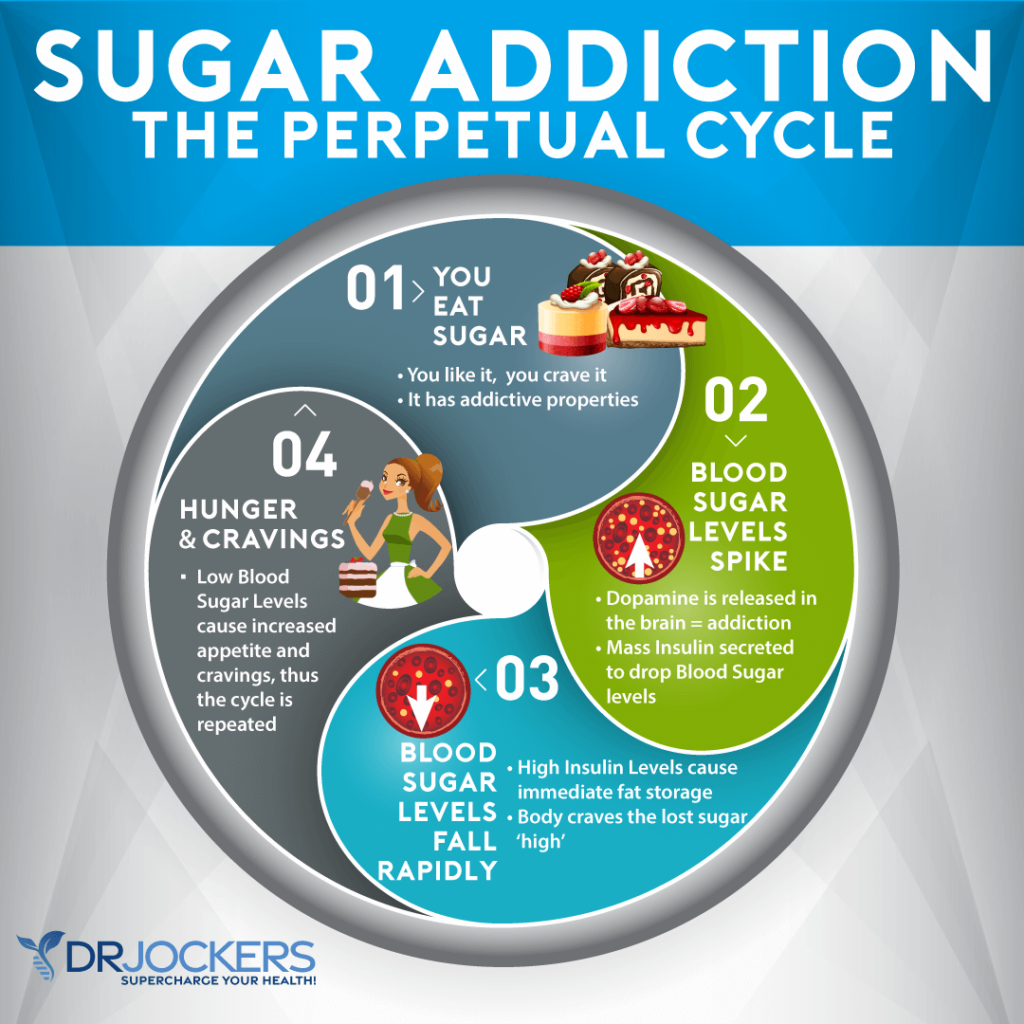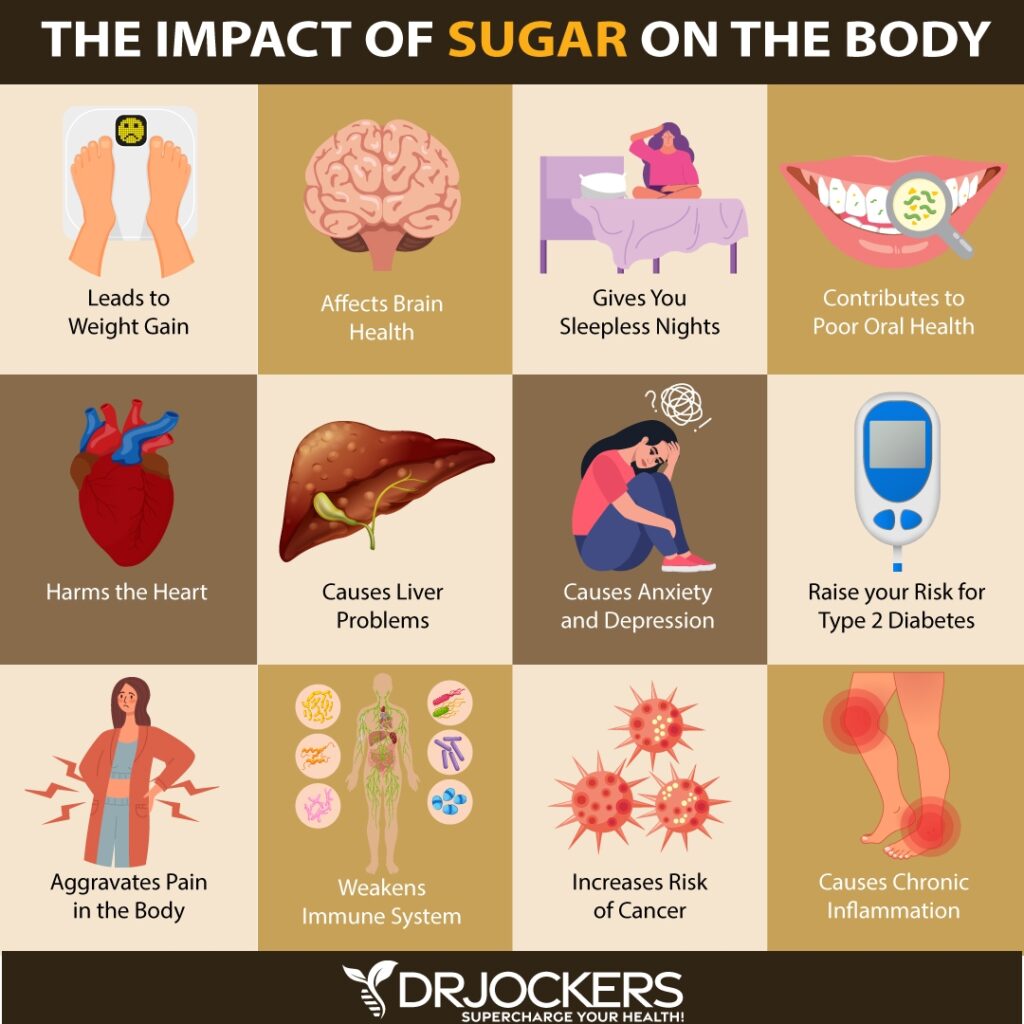Imagine a table spread with mouth-watering delights: a platter of donuts, delectable desserts, rich chocolates, fizzy sodas, freshly baked bread, ketchup-laden fries, and an array of cured meats. They all look irresistible, don’t they? But what if I told you that indulging in these treats is slowly killing you? The hidden enemy within these foods is sugar, a silent killer that wreaks havoc on your body over time.
The Silent Killer: Sugar
Sugar is everywhere. It’s in your morning cereal, the soda you have with lunch, the sweetened yogurt you grab for a snack, and even in seemingly healthy fruit juices. While sugar may enhance the taste of our food, its impact on our health is profound and far-reaching.
When you consume sugar, your blood sugar levels spike, prompting your pancreas to release insulin. Insulin is a hormone that regulates blood sugar levels by facilitating the uptake of glucose into your cells for energy. However, there’s a dark side to this process. Insulin also signals your body to switch from burning fat to burning glucose as its primary fuel source. This means that as long as insulin levels are high, your body’s ability to burn fat is significantly reduced.
The Vicious Cycle
The more sugar you consume, the more insulin your pancreas produces. Over time, your body becomes less sensitive to insulin, leading to a condition known as insulin resistance. In this state, your body requires more and more insulin to manage blood sugar levels, creating a vicious cycle of high sugar intake and high insulin production.
Excess sugar that your body can’t immediately use for energy is stored as fat in your liver, muscle cells, and adipose tissue. The liver, in particular, converts this excess sugar into fat in a process strikingly similar to how it metabolises alcohol. This process can lead to a greater accumulation of fat in the liver, contributing to non-alcoholic fatty liver disease.

The Health Risks
The long-term consequences of high sugar consumption are alarming. Here are some of the health risks associated with excessive sugar intake:
1. Obesity: High sugar consumption contributes to weight gain and obesity, as excess sugar is stored as fat.
2. Diabetes: Insulin resistance can progress to type 2 diabetes, a chronic condition characterized by high blood sugar levels.
3. Cardiovascular Disease: High sugar intake is linked to an increased risk of heart disease, including high blood pressure, high cholesterol, and heart attacks.
4. Fatty Liver Disease: As mentioned, excess sugar is converted to fat in the liver, leading to non-alcoholic fatty liver disease.
5. Inflammation: Sugar promotes inflammation in the body, which is a precursor to many chronic diseases, including cancer.
6. Dental Problems: Sugar is a major cause of tooth decay and cavities.
7. Insulin Resistance: Over time, high sugar intake leads to insulin resistance, which disrupts the body’s ability to regulate blood sugar levels effectively.

Hidden Sources of Sugar
Identifying and avoiding hidden sources of added sugars is crucial for protecting your health. Here are some common culprits:
1. Soft Drinks: A single can of soda can contain as much as 10 teaspoons of sugar.
2. Fruit Juices: Even 100% fruit juices can be high in natural sugars and lack the fiber found in whole fruits.
3. Yogurt: Many flavored yogurts are packed with added sugars, turning a healthy snack into a sugar bomb.
4. Cereals: Breakfast cereals, especially those marketed to children, are often loaded with sugar.
5. Processed Foods: Sugar is added to a wide range of processed foods, from salad dressings to sauces and ready meals.
The Role of Simple Carbohydrates
Eating simple carbohydrates can also contribute to sugar consumption because they are quickly broken down into glucose in the body, leading to a rapid spike in blood sugar levels. Foods such as white bread, pasta, and pastries, though not sweet to taste, have a high glycemic index and can cause similar insulin responses as consuming direct sugars. This not only impacts your blood sugar levels but also promotes fat storage and increases the risk of developing insulin resistance, thereby contributing to the overall negative effects of sugar on your health. For more information on choosing healthier carbohydrate options, check out my blog on Smart Carbs: How to Select Carbohydrates for Optimal Health.
Making Healthier Choices
Reducing your sugar intake doesn’t mean you have to give up sweetness altogether. Here are some healthier alternatives to consider:
1. Stevia: A natural sweetener derived from the leaves of the stevia plant, it’s calorie-free and much sweeter than sugar.
2. Raw Honey: While still a form of sugar, raw honey has additional health benefits, including antibacterial properties.
3. Coconut Nectar: Made from the sap of coconut blossoms, it has a lower glycemic index than regular sugar.
4. Maple Syrup: A natural sweetener with some vitamins and minerals, but should still be used in moderation.
Conclusion
The enticing allure of sugary foods can be hard to resist, but the long-term damage they cause is not worth the momentary pleasure. By understanding the detrimental effects of sugar and making informed choices about what you eat, you can protect your health and well-being.
Start by reading food labels carefully and opting for natural, whole foods. Your body will thank you for cutting down on sugar and embracing a healthier lifestyle. Remember, it’s not about completely eliminating sugar but making smarter choices and enjoying treats in moderation. Your health is your most valuable asset, so take care of it by being mindful of what you consume.
As a naturopathic doctor, I can offer personalized guidance on achieving a balanced nutrition, weight management, and overall disease prevention. Feel free to book a 15-minute free discovery call here to explore how naturopathic medicine can help you.










